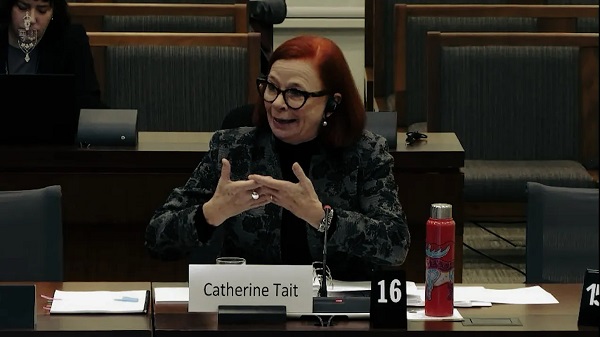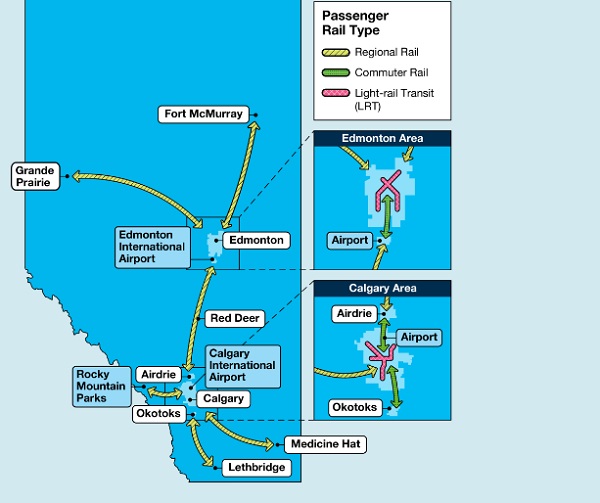Alberta
The Alberta Update: Recap of this week’s top provincial issues
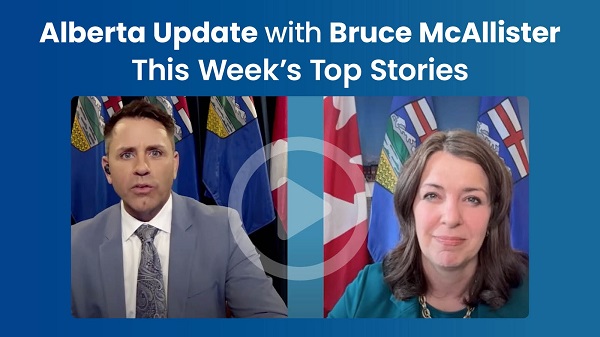
Tune into this week’s episode of the Alberta Update with host Bruce McAllister. Guests include Premier Danielle Smith, Minister Rebecca Schulz, and Minister Searle Turton. Topics covered include safeguarding freedom of expression, stopping Ottawa’s production cap, and updates to the Alberta Bill of Rights.
Alberta
Canadian gov’t lawyers request jail for Calgary pastor who protested ‘drag queen story hour’ at library
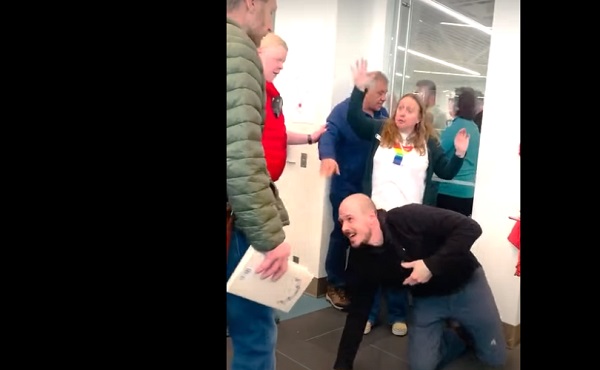
Canadian pastor Derek Reimer is thrown out of a drag queen story time event at a public library in Calgary.
From LifeSiteNews
The Crown is seeking a long probation on top of a jail sentence for Derek Reimer, who believes that despite the ‘egregious sentence proposal,’ ‘there’s a good chance I will go home with my family after the sentencing verdict.’
Government lawyers are seeking a potential one-year jail sentence and probation for a Calgary pastor who was hit with criminal harassment and breaching bail condition charges for protesting “drag queen story hours” targeting children at a public library last year.
Pastor Derek Reimer of Mission 7 Ministries was in Alberta Court of King’s Bench court Thursday for sentencing regarding a guilty verdict issued in October.
Reimer told LifeSiteNews that despite the “Crown’s egregious sentence proposal,” he feels “encouraged that there’s a good chance I will go home with my family after the sentencing verdict.”
“Even if I don’t, I know the Lord will work it out for good and I will rejoice that I’m counted worthy to suffer shame for Jesus’ name,” he added.
In October, Reimer was hit with a criminal conviction and a $500 fine after a judge found him guilty of breaching his bail conditions because he spoke out against a “drag queen story time” event for children at another public library.
In court Thursday, the main Crown prosecutor claimed that Reimer had targeted a library manager with a “personal attack” and “hateful vitriol” and showed a “lack of remorse” after he confronted her to object to the library hosting kids “drag queen story time.”
In court, the Crown used two videos posted by Reimer after the incident to use against him.
The Crown is seeking a long probation on top of a jail sentence to, in its words, keep Reimer “on the straight and narrow” and to “ensure the public remains safe from criminal harassment.”
Reimer’s lawyer, Andrew MacKenzie, argued that the library manager had used the words “upset,” which he claimed do not constitute a type of reaction to one getting harassed.
Judge Heather Lamoureux is now looking at all the facts and has noted that she will consider that Reimer is his family’s sole bread winner and whose wife has a baby on the way before handing him his sentence.
Lamoureux hinted that a conditional sentence “could be more reasonable” than one that carries actual jail time. Sentencing will occur on December 3. MacKenzie has also asked the court for a conditional sentence in lieu of time already spent in jail.
The judge also noted that Reimer’s right to “protest LGBTQ events” is not what the case is about, and he can protest so long as he does not cross the “boundary of harassment” that the Crown has argued occurred.
Pastor: ‘I’m here to serve God’ and ‘expose what the Bible calls darkness and sin’
In court, Reimer noted that he is not the “man the court and the media made me out to be,” adding that is not how he lives his “life now.”
“I’m a man that’s been transformed by God’s grace, nine years ago,” he said, adding, “my past life has a totally different mindset behind it.”
He added that he is “concerned” with what is “happening to Canada” and that he feels he has been called by “God Almighty to preach His word, feed the homeless and protect children.”
“To expose what the Bible calls darkness and sin,” he said, adding, “I’m not here to hurt anybody. I’m here to serve God. What they’re doing is wrong, according to the Bible,” he said.
In late October, Reimer was visited by Calgary Police at his home after he was served a notice of appeal for a judge’s recent acquittal of his charges for protesting transgender story times at public libraries, LifeSiteNews learned.
The notice of appeal concerns a different incident, as reported by LifeSiteNews in September, in which Judge Allan Fradsham ruled that Reimer is not guilty of a criminal offense for protesting a pro-LGBT “drag” event marketed to kids called “Reading with Royalty” that took place at the Seton Public Library in Calgary in February 2023.
Reimer has been arrested many times for protesting “drag queen story time” and other pro-LGBT events.
He has also been the target of harassment for protesting these events. Last April, his van was vandalized with an anti-Christian message as well as a satanic symbol while he was in jail after, yet another arrest related to his pro-family activism.
Last year, Calgary passed a new so-called “Safe and Inclusive Access Bylaw” that disallows “specified protests” both inside and outside all city-owned and affiliated public buildings.
The bylaw means that anyone protesting pro-LGBT events at public buildings will be barred from getting within 100 meters of any such location.
Alberta
Putting an end to the photo radar cash cow

Alberta’s government is ending the photo radar cash cow, eliminating areas where photo radar is used to generate revenue with no traffic safety benefit.
Many Albertans have expressed growing frustration with photo radar, questioning its focus on revenue rather than safety. In response to these concerns, Alberta’s government paused the introduction of new photo radar equipment and locations on Dec. 1, 2019. Now, after thorough analysis and consultation, Alberta’s government is taking bold steps to restore public trust.
Effective April 1, 2025, ticketing on numbered provincial highways will end as photo radar will be restricted to school, playground and construction zones. Intersection safety devices in Alberta will also be restricted to red light enforcement only, ending the ‘speed-on-green’ ticketing function.
Municipalities will also be able to request that the province approve additional photo radar locations on an exceptional basis, for high collision areas and where other safety measures cannot be implemented effectively. These types of exceptions will be subject to an audit every two years to assess the effectiveness of photo radar at the site in reducing collisions.
“This is great news for Alberta drivers. These changes will once and for all kill the photo radar cash cow in Alberta. Albertans can be confident that photo radar will only be used to improve traffic and roadside worker safety and not to make money.”
The next step for government is to review every existing photo radar site in the province over the next four months. As part of that review, those that are deemed ineffective, or outside of a school, playground, or construction zone, will be removed. This is expected to reduce the current 2,200 approved sites by 70 per cent, which would also better align the amount of photo radar with other provinces. Currently, there are about 70 per cent more photo radar sites used in 24 Alberta municipalities than the next highest province. Allowing these changes to be implemented over the next four months provides municipalities time to transition, update equipment and adjust contracts with vendors.
“I’m happy to see the province focusing photo radar on playground and construction zones. We need to prioritize safety where it matters most – protecting our children and workers on Calgary’s roads. I’m proud to support this vital step toward safer communities.”
“It is vital we maintain safety where it matters most—around our schools, playgrounds and construction zones. These are areas where enforcement can genuinely protect lives, not just generate revenue. With this new policy change, we’ll see more officers back in neighbourhoods and that visibility will help tackle the growing issues of crime and disorder – a top priority for Edmontonians and Albertans.”
“The Minister’s announcement will ensure that the use of photo radar is focused on enhancing traffic safety on high-risk roadways. RMA looks forward to learning how current photo radar sites will be assessed and is optimistic that this will result in an approach that supports safer roads without unfairly penalizing drivers.”
Municipalities will be encouraged to use traffic-calming measures to improve traffic safety, including speed warning signs, speed tables (large flat speed bump), public education campaigns and other tools designed to improve traffic safety. The province will also help make roads safer by providing municipalities with support to reengineer roads and intersections that have been proven to be unsafe.
Quick facts
- Alberta first introduced photo radar in 1987.
- All photo radar sites were removed from ring roads in Calgary and Edmonton on December 1, 2023.
- The government engaged with municipalities in June and August 2024 about photo radar and specifically to discuss solutions to eliminate ‘fishing holes.’
- The top five revenue-generating sites from last year are:
- Strathcona County – Baseline Road/17 St., 52,558 tickets (144/day) $5,956,573 in fines
- Edmonton – Gateway Blvd./34 Ave., 23,977 tickets (144/day) $2,717,393 in fines
- Edmonton – 170 St./118 Ave., 20,241 tickets (55/day) $2,293,980 in fines
- Calgary – Beddington Tr./Country Hills Blvd., 19,337 tickets (53/day) $2,173,167 in fines
- Edmonton – 127 St./126 Ave., 18,705 tickets (51/day), $2,119,900 in fines
Related information
-
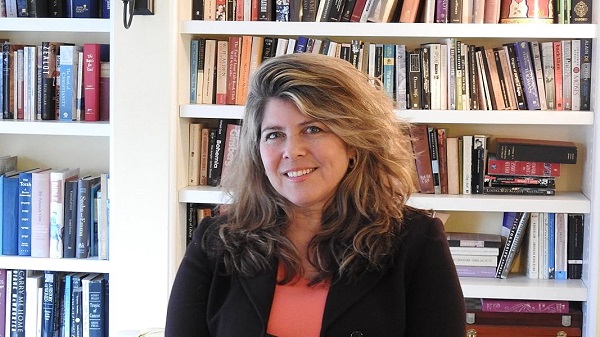
 COVID-192 days ago
COVID-192 days agoNew book edited by Naomi Wolf exposes Pfizer’s ‘crimes against humanity’
-

 Alberta2 days ago
Alberta2 days agoThe Alberta energy transition you haven’t heard about
-

 espionage2 days ago
espionage2 days agoShock interview reveals big names connected to international paedophile network
-
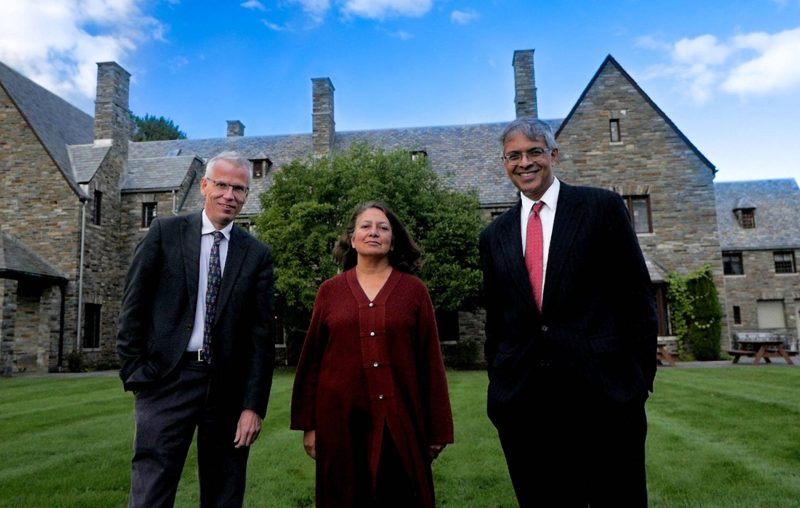
 Brownstone Institute2 days ago
Brownstone Institute2 days agoJustice Is Served: Jay Bhattacharya Chosen to Be NIH Director
-
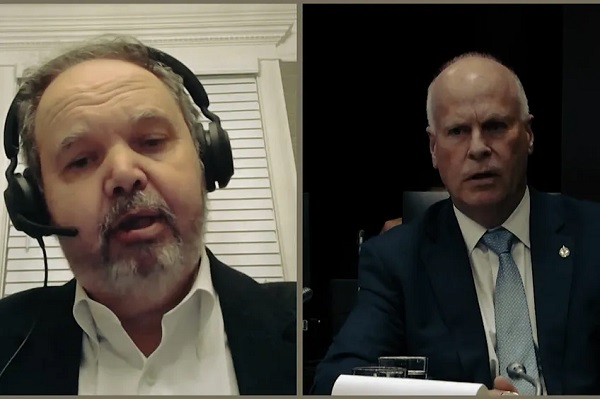
 Business2 days ago
Business2 days agoGreen Energy or Green Grift? SDTC at the Center of a $38 Million Scandal
-

 Alberta2 days ago
Alberta2 days agoA Trump Effort To Revive Keystone XL Would Likely Be Purely Symbolic
-

 Crime2 days ago
Crime2 days agoThe Bureau Exclusive: The US Government Fentanyl Case Against China, Canada, Mexico
-

 Daily Caller2 days ago
Daily Caller2 days agoCelebrities Do Not Have The Political Star Power They Thought They Did


